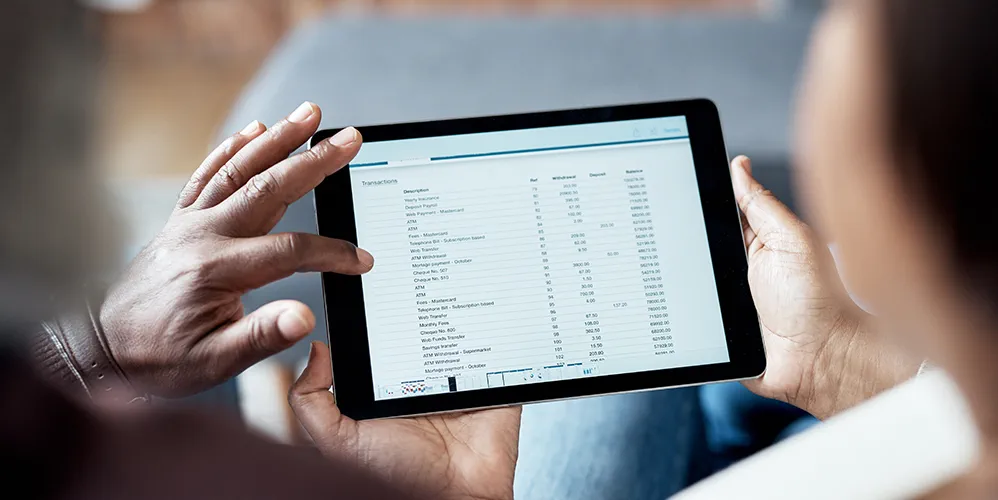
IMPS in Banking – Full Form, Features, Transaction Limit, Charges & how it works
16 Oct 2024

Table of Content
What is IMPS: Full Form, Features & How it Works?
IMPS Stands for Immediate Payment Service, It helps beneficiaries to receive the amount instantly from the sender's bank account to their bank account.
Banking services are constantly evolving making services like sending and receiving money online through the banking app or net banking common these days. Available seamlessly for customers round the clock particularly when it comes to money transfer, gone are the days of tokens and teller counters even when transferring high-value funds. No longer are you expected to fill out withdrawal and deposit slips and wait for your turn when your token number is flashed, thanks to Internet banking life has become so much smoother and easier. Not just transferring money but ordering food, groceries, and utility items from the app or internet banking, IMPS will initiate quick payment.
Features of IMPS
The most preferred form of fund transfer, you should know the features of IMPS.
Flexible, Versatile & Available at all times
Can be used for various payment modes P2P (Person to Person) and P2M (Person to Merchant) modes, online shopping, online merchant payment, insurance, fees, EMI, and utility 24×7, 365 days.
Fund transfer in Real-time
Highly secure and a safe mode of transfer protected with firewalls, data transfer is encrypted and is impossible to hack but with no safety net for human error.
Also Read: Mobile Banking - Benefits, Features & How to Get Started
How to Transfer Money Through IMPS?
Transfer through mobile number & MMID for P2P transfer
What is the meaning of the IMPS Mobile Money Identifier (MMID)? This is a 7-digit code linked to the mobile number. The P2P (Person to Person) transfer follows 4 seamless steps.
- Log in to your Mobile or Net Banking
- When transferring funds select IMPS for P2P transfer
- Enter the recipient’s mobile and unique MMID number
- Enter the transferred amount, and authenticate the transaction using PIN and 2FA( Two Factor Authentication)
P2A(Person to Account) transfer with IFSC
- Log in to the online banking portal and choose fund transfer
- Add beneficiary, bank account number and IFSC
- After the beneficiary is added, choose fund transfer with IMPS
- Select the P2A option and beneficiary
- Enter the amount and authenticate the payment.
IMPS Transaction Limit
The National Payments Corporation of India (NPCI) has set the IMPS limit per day to Rs 5 lakh from the account. Banks set their own IMPS maximum limit. Depending on your bank, check the limit and accordingly transfer funds.
IMPS Charges
The bank applies charges on IMPS transfers which include just outward remittances and not inward transactions. The bank can waive charges for specific customers. No specific charges are followed by banks and the charges are determined according to the amount transferred with an additional goods and service tax.
How does IMPS work?
For setting up IMPS make sure you provide the IFSC code and the bank account number. Add the Mobile Money Identifier (MMID), Aadhar Number, beneficiary, and sender's mobile number. You can also transfer through internet banking. Log into your Internet banking or mobile application by entering ID/Password. Choose the beneficiary and transfer or choose a one-time transfer. Transfer funds through IMPS by either the MMID or account details with the IFSC code.
Who is Eligible for IMPS?
To use IMPS the individual must have a savings account or current account in the bank enabled with either Internet banking, mobile banking, or both. For transferring money through IMPS the MMIDs of both parties are required. Banks on their part fulfil various eligibility criteria to facilitate IMPS service to providers as per RBI regulations, the banks will require accreditation from RBI to participate in this payment system.
Why is IMPS useful?
The use of instant money transfer is itself beneficial and that goes without saying. With banking services taking a dynamic turn towards customer ease IMPS is a highly accessible anytime anywhere facility available round the clock. The details required are quite minimal like account number and IFSC code along with the MMID number of the beneficiary if done through the mobile app. While online banking may involve a bit more detail, the process remains seamless. The cost per transaction is highly regulated by banks making this facility quite popular.
Wrapping up
Banks understand the need for quick fund transfer with safety and keeping that in view IMPS has featured as one of the most popular modes of transferring funds. The transfer is highly convenient, its flexibility and advantages make customers' transactions seamless and highly preferred.
Also Read: What is Meant by Internet Banking and How Does It Work
Popular Articles
Tag Clouds
Related Articles









Unlocking Financial Efficiency: How Cash Management Services Transform Banking

-
Disclaimer
The contents of this article/infographic/picture/video are meant solely for information purposes and do not necessarily reflect the views of Bank of Baroda. The contents are generic in nature and for informational purposes only. It is not a substitute for specific advice in your own circumstances. Bank of Baroda and/ or its Affiliates and its subsidiaries make no representation as to the accuracy; completeness or reliability of any information contained herein or otherwise provided and hereby disclaim any liability with regard to the same. The information is subject to updation, completion, revision, verification and amendment and the same may change materially. The information is not intended for distribution or use by any person in any jurisdiction where such distribution or use would be contrary to law or regulation or would subject Bank of Baroda or its affiliates to any licensing or registration requirements. Bank of Baroda shall not be responsible for any direct/indirect loss or liability incurred by the reader for taking any financial decisions based on the contents and information mentioned. Please consult your financial advisor before making any financial decision.
Credit Card Minimum Due: What Every Credit Card Holder Should Know
Navigating the world of credit cards can feel overwhelming, especially with terms like "minimum due." Whether you’re a seasoned cardholder or new to credit, understanding what the minimum due means is essential for your financial health. In this blog, we’ll explore what the minimum due is, why it exists, and how it impacts your finances. By the end, you'll be equipped with valuable insights to manage your credit card payments wisely.
What is NEFT? A Complete Guide to National Electronic Funds Transfer
Now, you might be wondering, “what is neft fund transfer?”. NEFT full form in banking refers to National Electronic Funds Transfer. It is a widely used electronic funds transfer system in India. It enables individuals and businesses to transfer funds from one bank account to another seamlessly. The system is managed and regulated by the Reserve Bank of India (RBI), providing a secure and efficient means of transferring money. NEFT transactions typically involve the sender's and recipient's bank branches, and customers can initiate transfers through various channels such as online banking, mobile apps, or by visiting their bank branch. It has become an integral part of the Indian banking system, facilitating quick and reliable interbank transactions.

